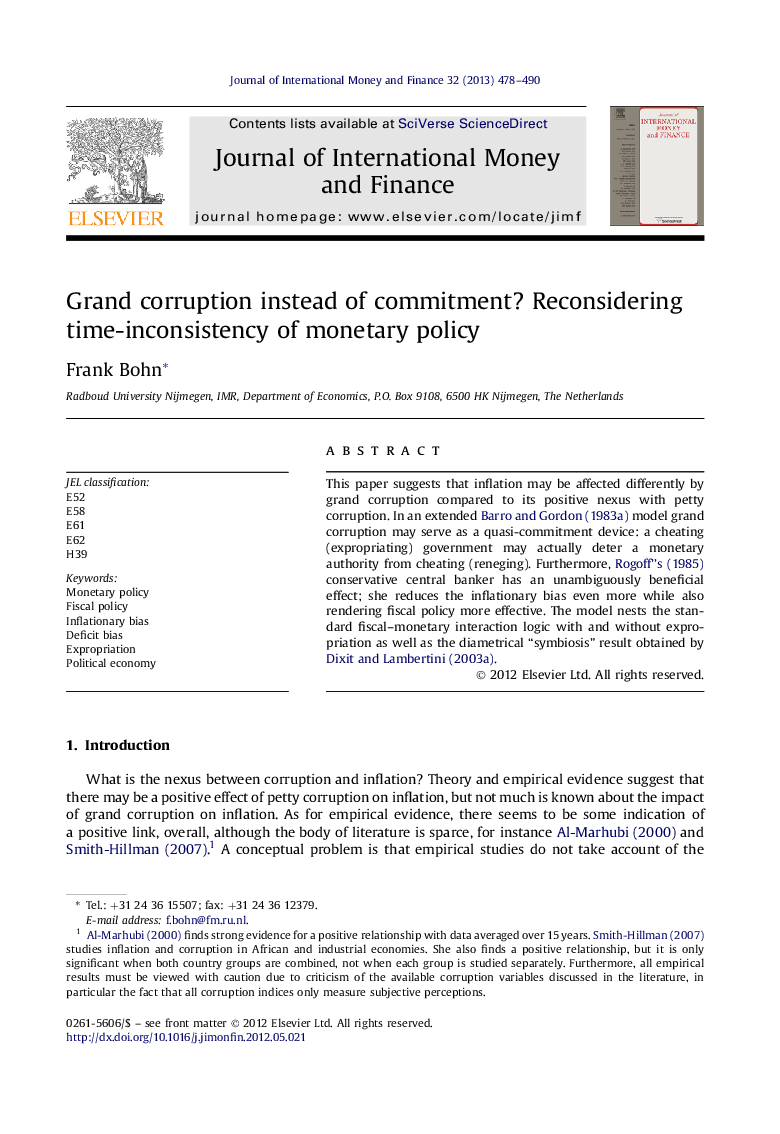| Article ID | Journal | Published Year | Pages | File Type |
|---|---|---|---|---|
| 7366249 | Journal of International Money and Finance | 2013 | 13 Pages |
Abstract
This paper suggests that inflation may be affected differently by grand corruption compared to its positive nexus with petty corruption. In an extended Barro and Gordon (1983a) model grand corruption may serve as a quasi-commitment device: a cheating (expropriating) government may actually deter a monetary authority from cheating (reneging). Furthermore, Rogoff”s (1985) conservative central banker has an unambiguously beneficial effect; she reduces the inflationary bias even more while also rendering fiscal policy more effective. The model nests the standard fiscal-monetary interaction logic with and without expropriation as well as the diametrical “symbiosis” result obtained by Dixit and Lambertini (2003a).
Related Topics
Social Sciences and Humanities
Economics, Econometrics and Finance
Economics and Econometrics
Authors
Frank Bohn,
